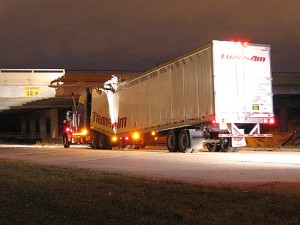 Drowsiness turns deadly when truck drivers fail to take caution and remain alert while driving.
Drowsiness turns deadly when truck drivers fail to take caution and remain alert while driving.
Lately we have been hearing way too many headlines about devastating truck accidents and the anguish caused by sleep-deprived truck drivers. In early June, comedian Tracy Morgan’s vehicle was hit by an allegedly tired Wal-Mart truck driver. According to CNN, the driver had not slept for 24 hours prior to the crash.
While Tracy Morgan’s condition has improved, the driving conditions for truck drivers has not.
A similar accident happened on June 27 when a UPS semi-truck flipped over in Delaware. In the early hours of the morning, the truck drifted into the guardrail, causing it to turn over and careen to a stop, blocking all four lanes of the busy highway and causing a car to crash into it, unable to stop.
What caused this accident? According to NBC Philadelphia, the UPS driver dozed off, causing him to lose focus and lose control. Nowhere do we see this more prevalent than those truckers coming down from the Eisenhower Tunnel and Vail Pass on I -70 when they are forced to drive in very low gears at very low speeds. The monotonousness of driving 20 mph takes its toll.
Although the occurrence in Delaware did not prompt any injuries, it surely prompted further debate– should there be more restrictions for truck drivers and increased required rest time?
Despite popular belief, truck drivers are not super-humans. Coffee and energy drinks will only take one so far. Lengthy drives and lethargy do not create the safest of situations for drivers and passengers. Everyone wants their purchases to arrive on time, but is the push for promptness going too far?
Currently, federal law only allows these drivers to be on the clock for no more than fourteen hours at a time; only eleven of them spent driving. How often are companies and drivers pushing past this, though? Some states have severe penalties for drivers when they go without sleep for 24 hours.
According to CNN, Congress is currently discussing a change in regulations and restrictions, but these regulations would not increase safety. The proposed change is to actually increase the amount of hours drivers are allowed to spend behind the wheel.
These drivers need to make a livelihood, but when does this need for a livelihood trump the need for safety?
Photo Credit: Beige Alert via Compfight cc

